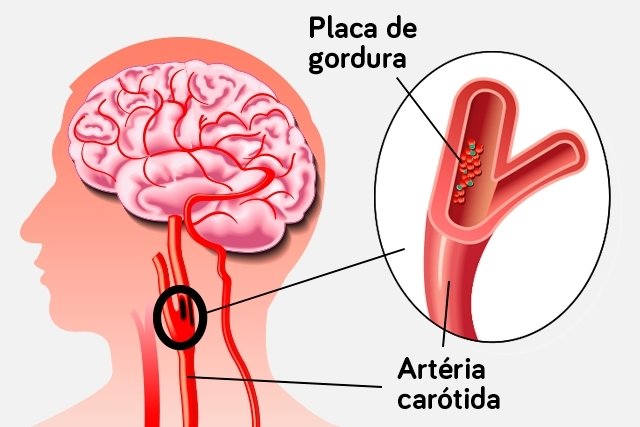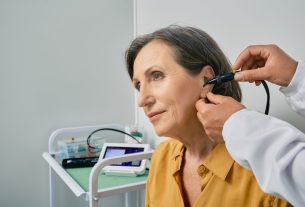Carotid Doppler, also known as carotid ultrasound, is an easy and painless exam that helps evaluate the inside of the carotid arteries, which are the vessels that run along the side of the neck and transport oxygen to the brain.
When there are health problems, such as high cholesterol or high blood pressure, there may be an accumulation of fat on the wall of this artery, which ends up reducing blood flow to the brain. Furthermore, these small fatty plaques can also rupture, forming a clot that can be transported to the brain and cause a stroke.
Therefore, this test is widely used to assess the risk of developing a stroke and, therefore, it is possible to initiate the most appropriate treatment, if necessary, to improve blood flow.

When is indicated
Performing a carotid Doppler is normally recommended by a cardiologist when the person has a personal or family history of high cholesterol, has chronic diseases or lifestyle habits that could favor the accumulation of fat inside the carotid artery. Therefore, this test is indicated to assess the risk of stroke in people with:
- Arterial hypertension;
- Diabetes;
- High cholesterol;
- Family history of stroke or heart disease;
- Coronary disease.
In addition to assessing the risk of stroke, carotid Doppler is indicated to investigate atherosclerosis, aneurysm and arteritis, which corresponds to inflammation of the artery walls.
How the exam is carried out
The exam is quite simple, you just need to lie down on a stretcher while the doctor passes the ultrasound device along the sides of your neck. To improve the image of the device, it may also be necessary to apply a little gel to the skin.
If it is not possible to obtain a clear image, the doctor may also ask you to lie on your side or change the position of the body, to improve blood flow, for example.
Therefore, besides wearing comfortable clothes, it is not necessary to do any type of preparation before the ultrasound.
Exam results
The result of the exam must be evaluated by the doctor and, if it is considered that there is a risk of developing a stroke, some care or treatments may be recommended, such as:
- Eat a healthy and balanced diet;
- Do physical exercise at least 3 times a week;
- Do not smoke and avoid places with a lot of smoke;
- Taking medicines to lower blood pressure, such as Captopril or Losartan;
- Use medicines to reduce cholesterol levels, such as Simvastatin or Atorvastatin;
- Take medicines to prevent the formation of plaques, according to medical advice, such as Aspirin, for example.
Furthermore, when one of the arteries is very closed and, therefore, the risk of stroke is very high, the doctor may also recommend surgery to remove the fatty plaque from the artery wall or to place a small mesh inside the artery. (stent), which prevents it from closing. After these surgeries, it may be necessary to repeat the carotid Doppler to ensure that the problem has been resolved correctly.

Sign up for our newsletter and stay up to date with exclusive news
that can transform your routine!
Warning: Undefined array key "title" in /home/storelat/public_html/wp-content/plugins/link-whisper-premium/templates/frontend/related-posts.php on line 12
Warning: Undefined array key "title_tag" in /home/storelat/public_html/wp-content/plugins/link-whisper-premium/templates/frontend/related-posts.php on line 13



